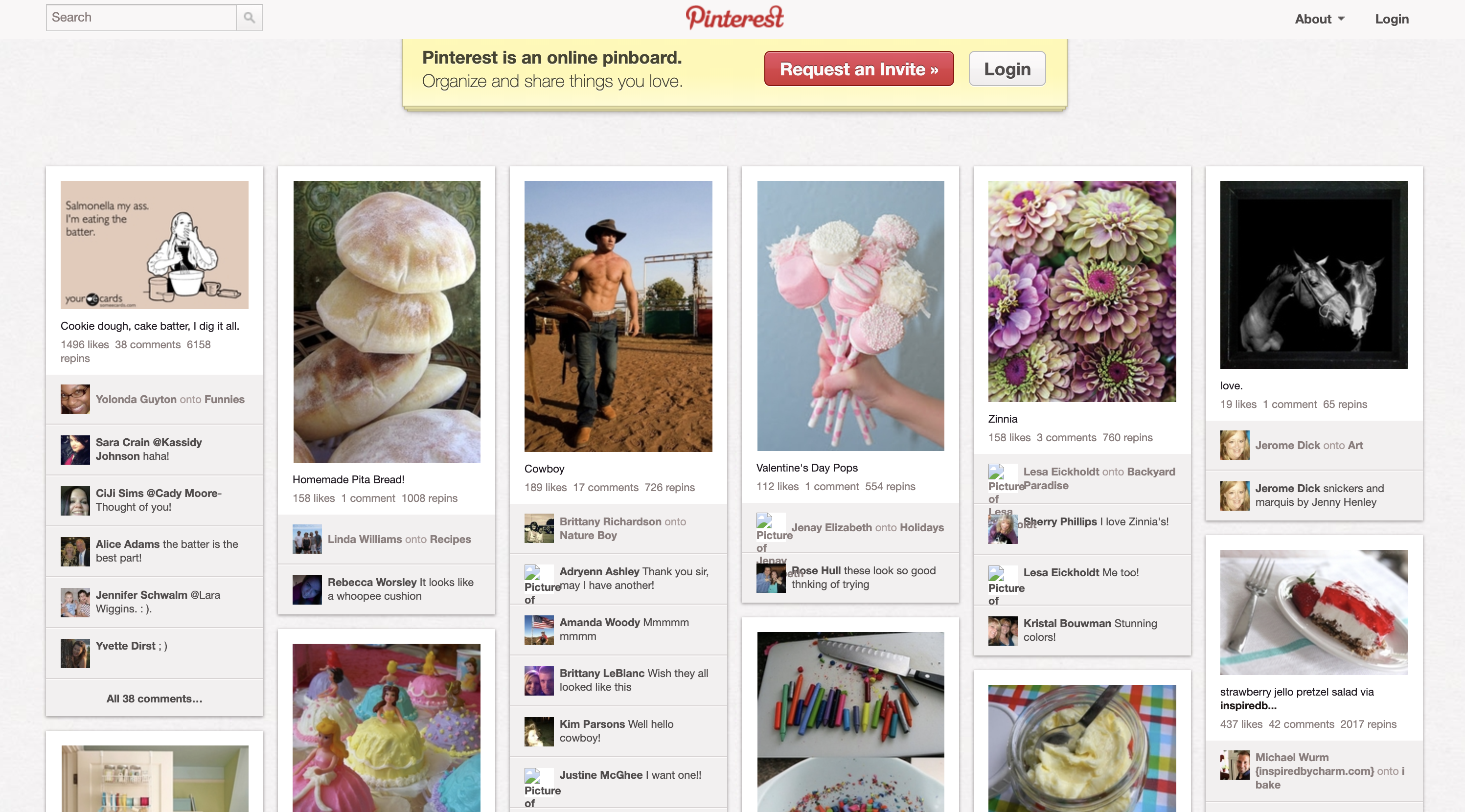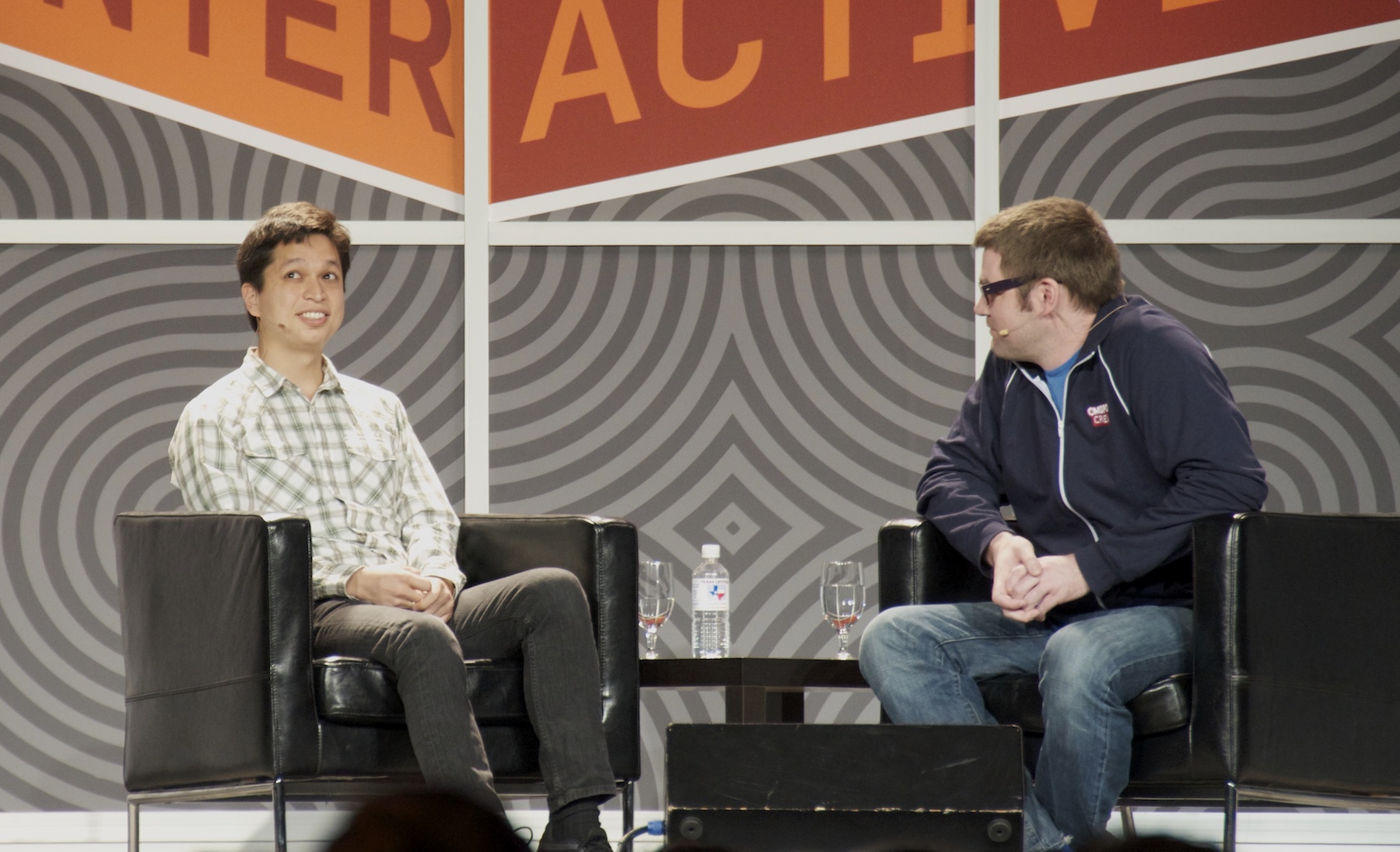The following is my rough outline from the 11AM SXSWi session featuring Pinterest Co-Founder and CEO Ben Silbermann. There was lots of great advice on monetization, design, building a successful business, and social communities. And I felt like sharing a few of those things with you today.
The questions covered everything from his job history, to early challenges at Pinterest. There are lots of great learnings here as well.
Job History
- Started in sales support for Google, working specifically with Adsense.
- Quit Google to develop iOS applications, before starting Pinterest.
Background
- The idea came from visiting people’s homes, and seeing “collections” of people’s lives that needed to be shared online
- Wanted a person’s “board” or collection on Pinterest to be more beautiful as a whole than each image could be individually.
Design
- Quality was the most important aspect, with meticulous testing done on layouts, contrast, colors, fonts, and how the site would work in different people’s devices.
- Ben liked to go to bookstores and look at lifestyle magazines, to gauge interest in certain verticals.
- In a world were buzz dies after 24-48 hours, the Pinterest boards have a timeless elements.

Early Months
- For the first 9 months Pinterest had 10,000 users.
- Growth happened much slower than they had hoped.
- Ben personally emailed the first 5,000 users thanking them for signing up, and opening ongoing communication.
- Up until the middle of last year it was only 5 people working in his apartment.
Interesting Uses
- Each day people find a use for Pinterest that they would have never thought people would use it for
- Lot’s of museums have joined lately, to share their art with the world.
- Travel boards are also new, and people create elaborate travel guides to cities all over the world.
Competition. - Clones have always happened, now they just happen faster and faster with the low barrier to entry of technology.
- Most of your focus shouldn’t be racing against competition, but against making the greatest product possible.
- The competition doesn’t come from similar design, layouts, or code, it’s all about the people.
Copyright issues
- As a company they care about that issue, overall it is part of their culture, and giving value back to each of the users.
- The mission of the site isn’t to keep people on the site forever; it’s driving traffic out in the world, and driving real actions to build their content.
Monetization
- Long-term monetization will have to be something that speaks to the heart of the product itself.
- Helping people discover things they wouldn’t have found on their own.
- They have a lot of work to go on the discovery process before they continue with monetization.
Future Innovations
- Redesigning the profiles on Pinterest, to make your profile very different from what you have on Facebook and Twitter.
- A visual snapshot of what you are about, and to make it easier to discover new people based on pins
- Expanding the number of things you can pin to include Vimeo and Netflix.
- Platform expansion with a common and stable API framework for developers.
Social Community
- We have to invest in social norms the same way we invest into infrastructure and technology.
- Getting the right kind of behavior in a social site is important to growing the community in the right direction.
- Early on they personally reached out to users, to make sure they were cultivating the community correctly and encouraging the right behaviors.
- They character different kinds of users, because each has it’s purpose in the overall growth of the website.
- New ways to share are simply new ways to connect with other people; we are always actively seeking out ways to connect in new ways.
Launching a Successful Business
- Most people generalize whatever they did, and act like that was the strategy that made things work.
- People will say great founding teams have a certain look and feel, but every company cuts it’s own path.
- Every company is under a lot of pressure to look and act like the last company that was successful.
- Be good to the people that you build relationships with along the way. It will become part of your DNA.
- Identify those people that are passionate about your products from the start, which will be immensely valuable as feedback.
Mistakes
- Sometimes they overthought problems, as long as you can see failure as one more option that’s off the table; you’re in a good place.
- Do not be paralyzed by so many options, the best way to find out is to ship, the worst thing that users and customers can say is no.
- It’s important to have people outside your business that you have good relationships with, don’t get tunnel vision in the way you think about your company.
Closing Remarks
- Pinterest is still small, 20 team members, 10 joined in the last four months.
- The team culture is the core of their business; rather than have a figurehead, they want to grow as a team.
Ultimately, I felt like Ben shared things in this session that he probably will not share as much of as CEO of Pinterest as they grow in the future. So, I hope to capture some of that here in case one day they find themselves a much larger company, prepared to IPO or get acquired.
